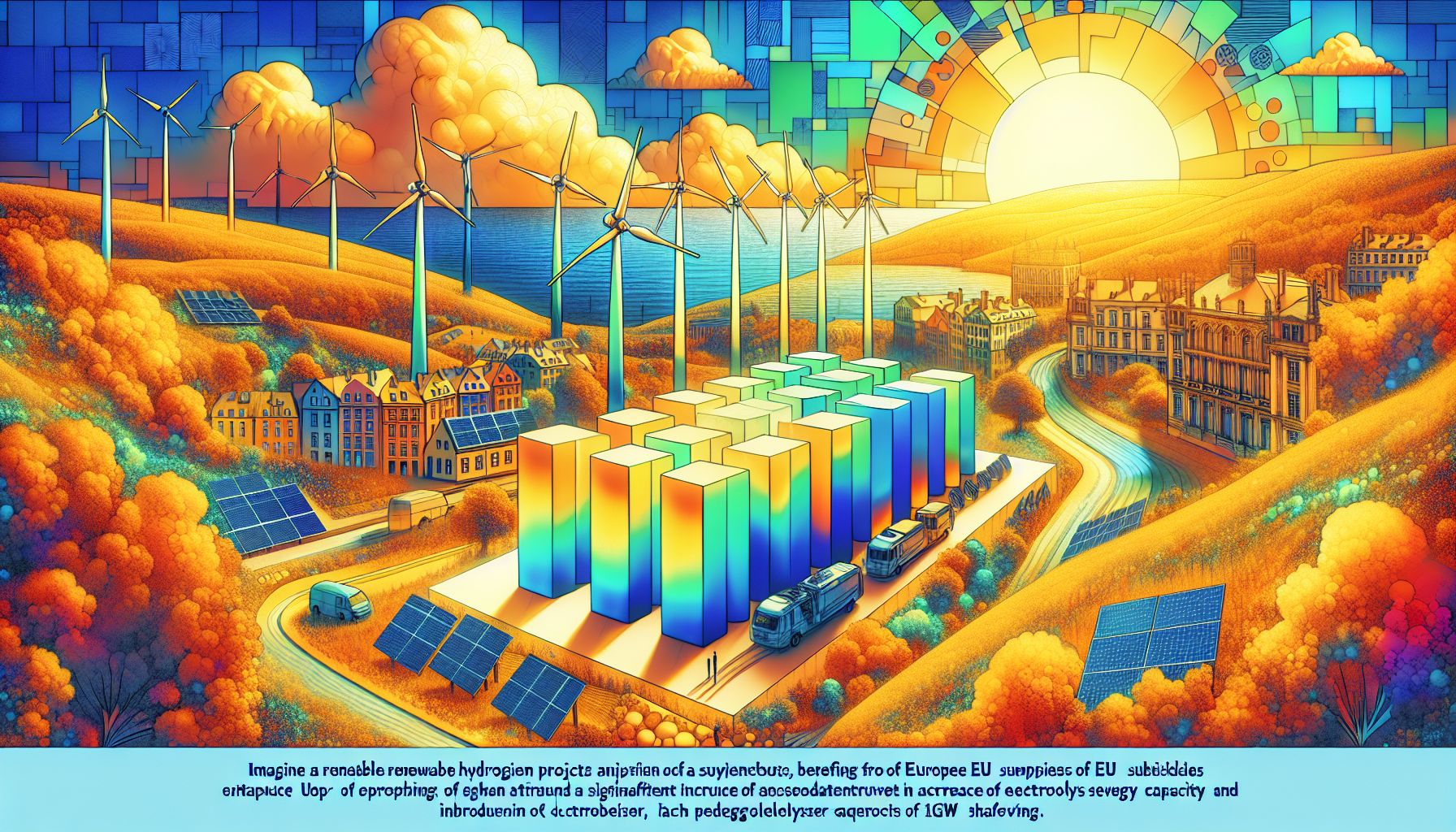eu subsidies boost renewable hydrogen projects with 1.5gw capacity

Seven renewable hydrogen projects receiving EU subsidies will add 1.5GW of electrolyser capacity, advancing Europe’s green energy goals and supporting the hydrogen economy.
A Significant Step Towards Green Energy
The allocation of EU subsidies to these seven projects signifies not just financial support but a robust commitment towards a sustainable future. These projects are part of the EU’s broader strategy to reduce greenhouse gas emissions by leveraging innovative clean technologies. The combined 1.5GW electrolyser capacity will play a pivotal role in Europe’s transition to renewable energy, particularly in hard-to-decarbonize sectors such as heavy industry and transportation.
Key Players and Their Contributions
Among the companies spearheading these projects is Iberdrola, a Spanish multinational electric utility company, and Gasunie, a Dutch natural gas infrastructure and transportation company. Iberdrola’s hydrogen development director, Jorge Palomar Herrero, emphasized the importance of matching great projects with actual demand, highlighting the need for consumption obligations to ensure project viability[1]. Gasunie’s chief executive, Willemien Terpstra, echoed these sentiments, stressing the newfound realism in the hydrogen discourse[1].
Challenges and Realism in Hydrogen Adoption
Despite the promising developments, the clean hydrogen industry faces significant hurdles. As noted by Fiona Simon, the chief executive of the Australia Hydrogen Council, 2024 has been a ‘year of doldrums’ for final investment decisions (FIDs) due to increasing material costs, financing challenges, and geopolitical instability[1]. Furthermore, Martijn Coopman, who manages Rotterdam’s hydrogen supply chain programme, pointed out the necessity of balancing incentives and mandates to stimulate market growth and ensure the practical application of hydrogen technologies[1].
EU’s Strategic Initiatives and Funding
The projects benefiting from the EU subsidies fall under the Innovation Fund, one of the world’s largest funding programmes for low-carbon technologies. The Innovation Fund, financed through the EU Emissions Trading System (ETS) revenues, has already awarded €6.5 billion to over 100 projects across EEA countries, with the aim of achieving significant emission reductions and advancing Europe’s green transition[2].
Collaborations and Future Prospects
International collaborations also play a crucial role in the hydrogen economy’s expansion. The EU’s engagement with Oman, as showcased during the Oman Renewable Hydrogen Summit 2023, underscores the potential of global partnerships in achieving net-zero economies[3]. The event highlighted the strategic importance of hydrogen in the clean energy transformation and the mutual benefits of leveraging Oman’s renewable potential and the EU’s regulatory framework[3].
Conclusion and Outlook
The EU’s investment in renewable hydrogen projects is a testament to its commitment to a sustainable future. By addressing current challenges and fostering international collaborations, the EU aims to solidify its position as a global leader in green energy. As these projects come to fruition, they will not only boost the hydrogen economy but also pave the way for a cleaner, more resilient energy system.

